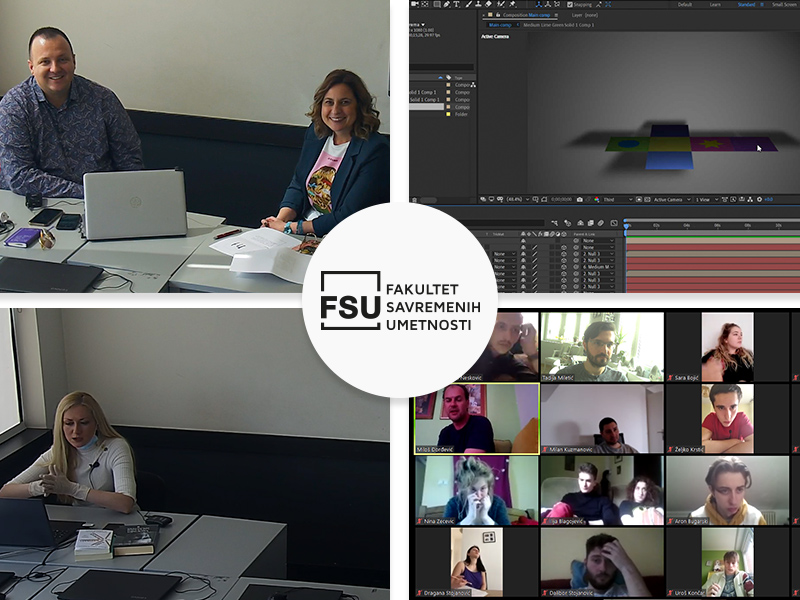The Faculty of Contemporary Arts is the only art school that didn’t stop classes throughout the state of emergency. Of course, the students didn’t attend the lectures physically, as teaching took place online in the undergraduate, master’s and doctoral programs.
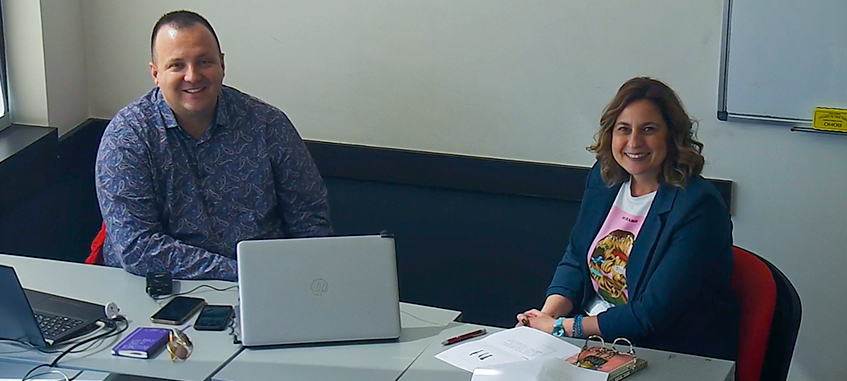
Due to the fact that gatherings are still restricted, schools and universities will probably be the last places where the situation will be normalized. We are yet to explore the research on how faculties and higher education institutions adapted to this situation and how it will affect the studies.
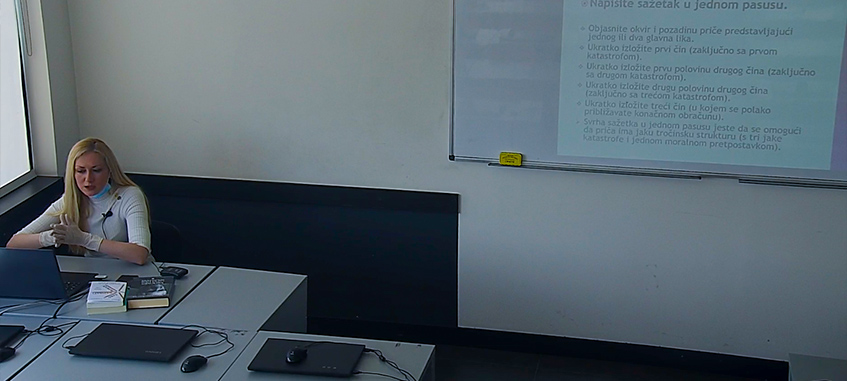
Three ways to implement online classes
The website NajStudent.com conducted a survey from April 21 through 27 in which 1,447 students from our country discussed how the pandemic affected their studies. Asked in what way their schools adapted to the newly created situation, almost half of the students said that the professors sent PDF and PPT with or without audio recordings.
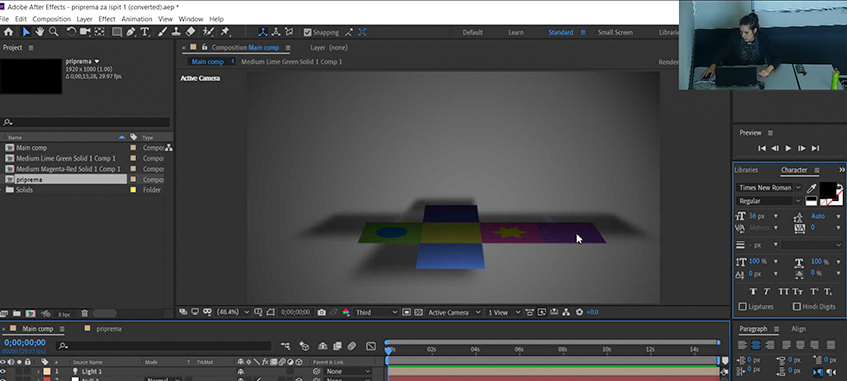
When the state of emergency was declared due to the pandemic, the Faculty of Contemporary Arts fully switched to online teaching. Depending on the type of subject (social sciences and humanities, art theory and art courses), classes were regularly held as follows:
1. Live streaming for about 60% of subjects, using LINKgroup’s Distance Learning System and the technical support of the Information Technology School – ITS.
This way, the students could follow live classes using their student platform accounts. More than 300 live stream classes in HD were broadcast during this period.
2. Online classes for about 25% of subjects, using distance learning platforms such as Zoom, Meet, Google Classroom or Skype;
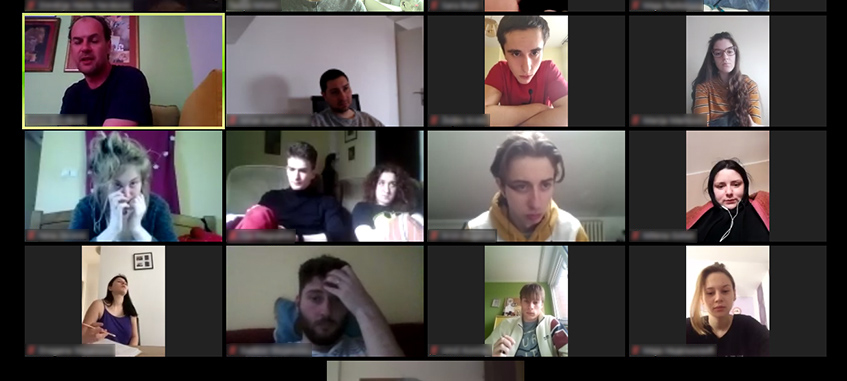
In addition to live streams, online classes were carried out through distance learning apps that allowed professors to interact with their students.
3. Online consultations for about 15% of subjects using material exchange.
Professors available to students 24/7
According to the same survey conducted by NajStudent.com, when asked what faculties and colleges should do in the current situation, almost two fifths of the students said that the schools should make their professors more available to students.
Throughout this situation, all FCA professors showed great dedication towards the students and completed all their obligations regularly. While abiding by all rules and measures, the professors teaching social sciences and humanities came regularly to work to implement live-stream sessions in the classrooms. In addition, they were also available to students throughout the week via online consultations, as were all other professors.
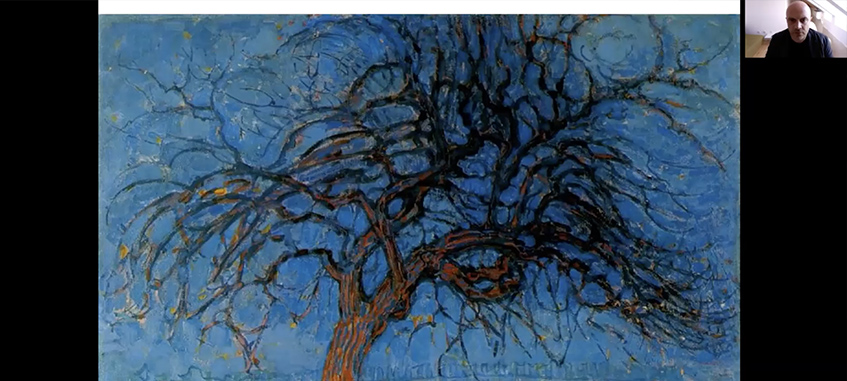
Video archive of classes
Following the live stream, the lectures were archived on the Distance Learning Platform and the video archive has been available to students 24/7.
Other learning materials (PDF presentations, textbooks, etc.) are available on the student platform together with online courses designed to help the students study and prepare for their exams.
Making up for missed classes in art courses from May 15
Following the end of the state of emergency, while adhering to all preventive measures, FCA will organize the classes missed in the art courses, as well as consultations for other subjects, the April exam term and preliminary exams for subjects in the summer semester.
In order for the faculty to have an objective insight into the quality of the teaching organized in this manner, FCA students took part in a survey on the pedagogical work of the professors and teaching quality. FCA will resume classes on May 15, when we will be able to assess the distance learning process.
Employees in the Student Administration and the Faculty Management were available to students throughout the state of emergency, continuing to provide technical and software support to FCA students. The students could also communicate with the Student Administration via email or telephone, while the technical support enabled an uninterrupted implementation of the online teaching process.
Some art course classes were carried out online
Thanks to the Distance Learning Platform, the Platform for Students, live stream, Zoom, Meet, Google Classroom and Skype, FCA students were able to follow the lessons and learn without interruption. The online classes were carried out following the recommendation of the Government of the Republic of Serbia, but also in accordance with the FCA curriculum. After each class, the materials were posted on the Platform for Students, where the student could access them at all times, together with the videos of all the lectures taped and broadcast live.
The biggest challenge was how to organize the lectures in art courses. Judging by the professors’ reports and student comments, all lectures were carried out successfully. Taking into account that acting and painting courses require direct work with the students, the missed classes will take place once we return to FCA premises.
FCA students used this period which we spent in our homes to study and prepare for the exams, as they will undoubtedly prove in the exam term we are eagerly awaiting.

